The COMETE project (moleCular radiOtherapy for METastatic Colorectal and gastric cancErs) focuses on the development of a radiotheranostic molecule portfolio for the diagnosis and the treatment (called radioligand therapy, RIT) of advanced digestive cancers with the aim of more precisely and more effectively addressing resistant and metastatic cancers without therapeutic option.
The COMETE project is carried out by a consortium made up of the company Oncodesign Precision Medicine (OPM), the molecular chemistry institute at the Burgundy university (ICMUB, UMR CNRS 6302) and the Centre Georges-François Leclerc (CGFL), a reference center in oncology. All are based in Dijon.
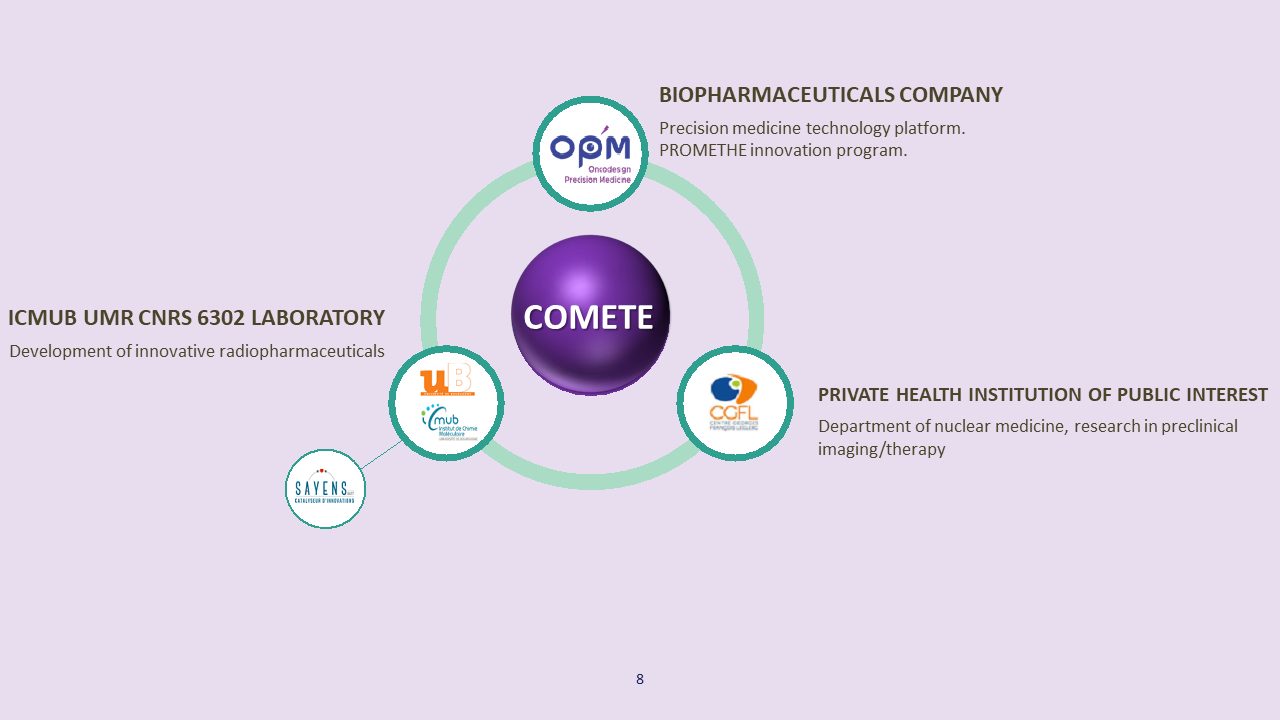
The COMETE project is co-financed by the European Regional Development Funds (FEDER) under the FEDER-FSE+ Bourgogne Franche-Comté (BFC) and Massif du Jura 2021-2027 (Action “PR1-RSO1.1-TA1 – Support of collaborative research projects in the areas of smart specialization strategy”) with the objective of improving research and innovation.

The COMETE project is structured around 4 main scientific objectives:
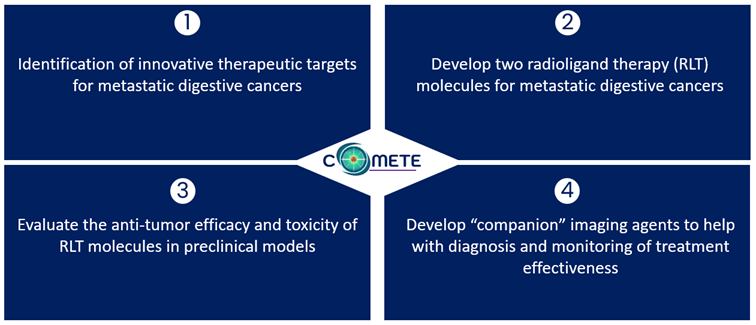
The targets
OPM’s OncoSNIPER platform allows the identification and validation of biological targets using artificial intelligence. This platform is used in the COMETE project.
Priority is giver to new targets, not yet exploited in RLT.
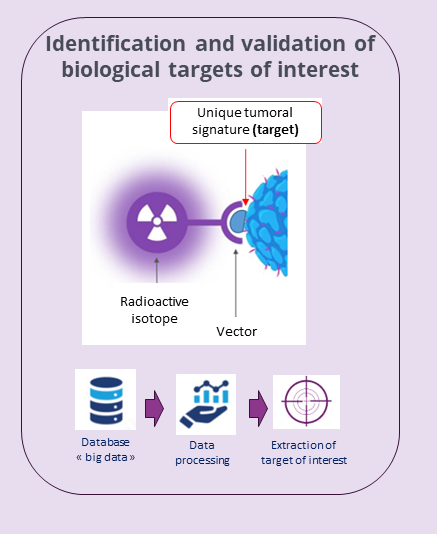
The vector
OPM has chosen to select the Affilins® as biological vector for this project. Affilins® is a proprietary technology of Navigo Proteins GmbH. The Affilins® are small proteins derived from human ubiquitin, having the following properties:
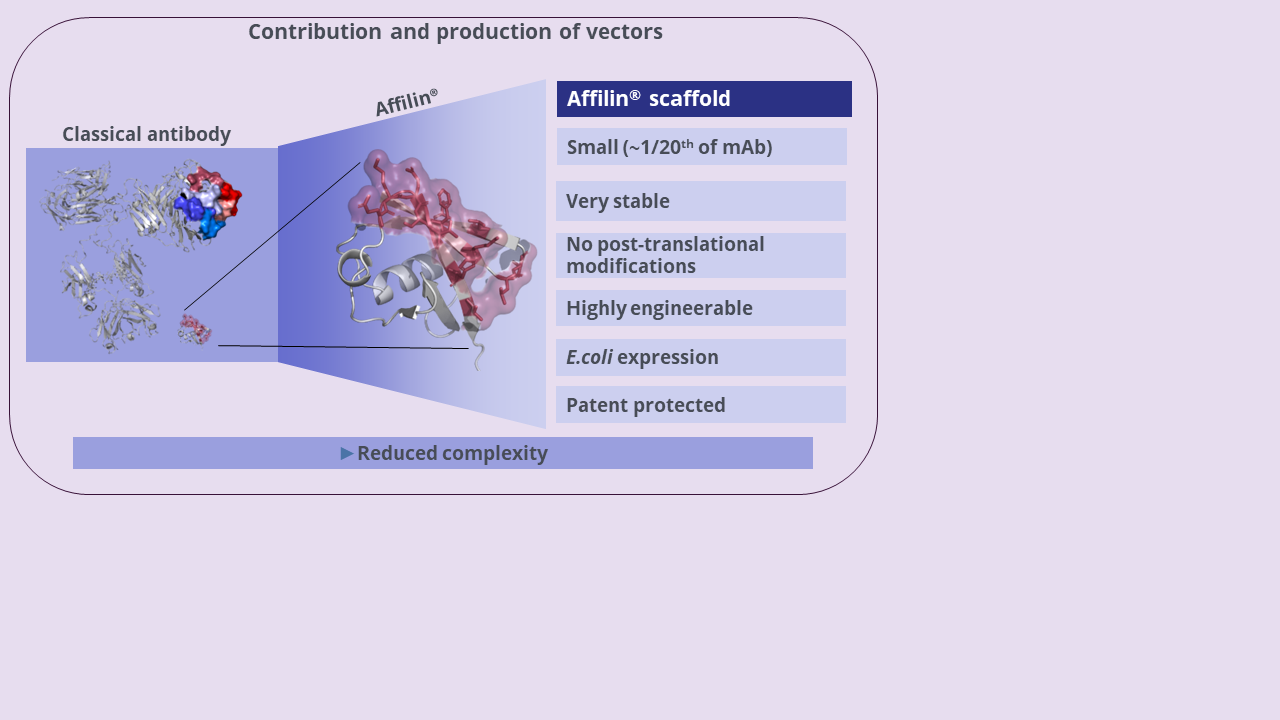
Clinical context
Digestive cancers represent more than 20% of cancers in France. The prognosis of these cancers is linked to the stage of the disease at the time of diagnosis. The therapeutic offer for advanced stage cancers, characterized by appearance of metastases, is very limited. Indeed, the development of new therapeutic strategies, combining surgery, radiotherapy and chemotherapy does not allow a significant improvement in the 5-year survival of metastatic patients, which remains less then 10%.
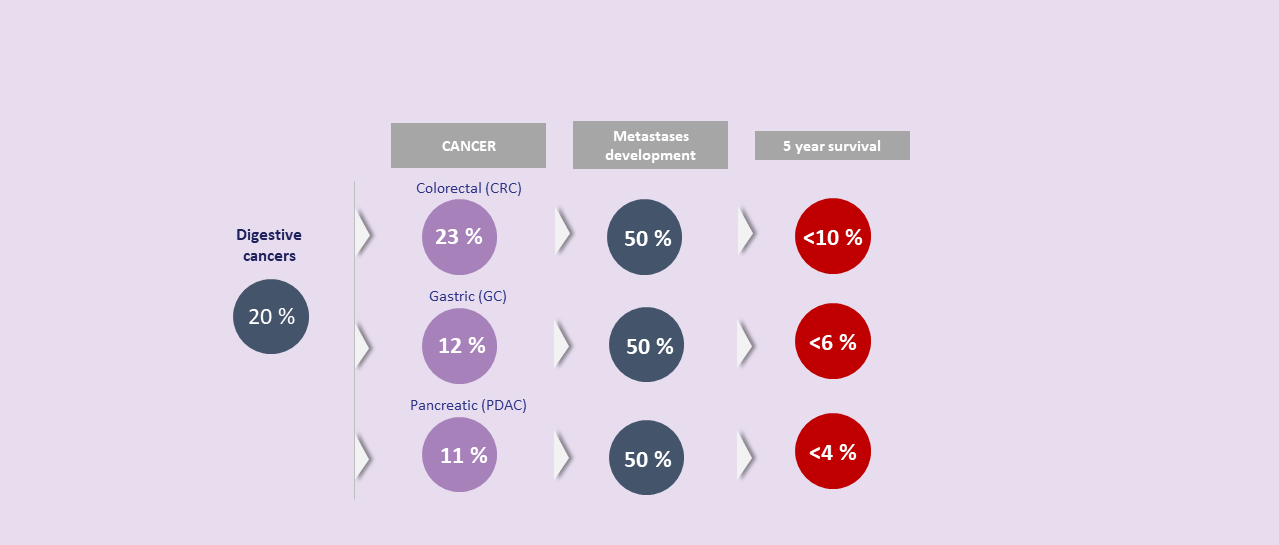
In this project, we propose to develop radioligand therapy (RLT) treatments, making it possible to respond to an unmet clinical need and to increase the survival of patients with metastatic digestive cancers.




